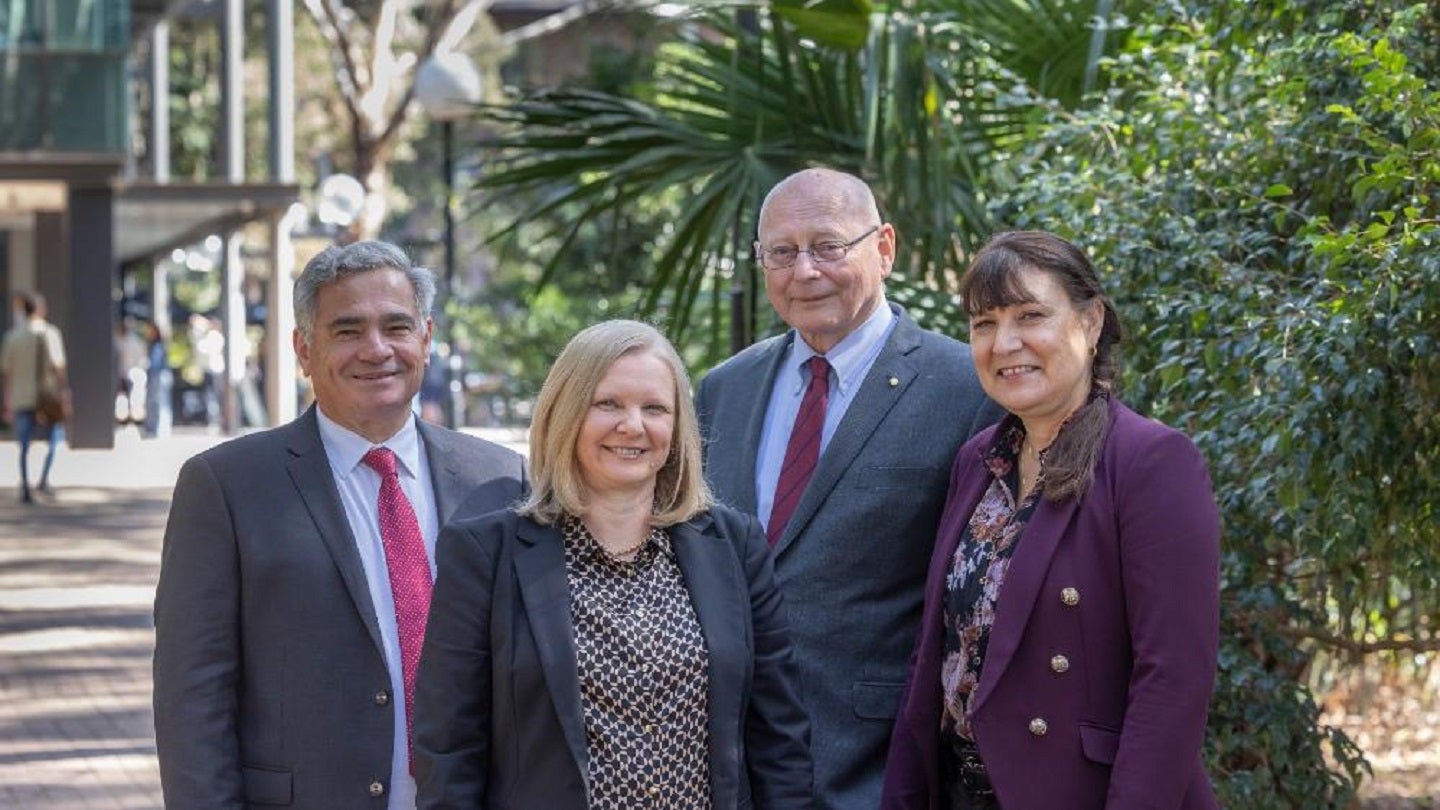Phebra, University of Wollongong partner to develop cancer therapies
28 Aug 2023
Cell TherapyClinical StudyImmunotherapy

Preview
Source: Pharmaceutical Technology
Andre Vlok and Mal Eutick from Phebra with Carolyn Dillon and Judith Carrall from UOW School of Chemistry and Molecular Bioscience. Credit: University of Wollongong.
Pharmaceutical firm Phebra has reached a new six-year collaboration agreement with Australia’s University of Wollongong (UOW), focusing on compounds that target acute myeloid leukaemias and pancreatic cancer.
The partnership will continue research and development (R&D), along with trials of the patented and targeted arsenic compounds for these indications.
Recommended Reports

Preview
Source: Pharmaceutical Technology
ReportsLOA and PTSR Model - AGuIX Gadolinium-Based Nanoparticles in Cervical Cancer GlobalData

Preview
Source: Pharmaceutical Technology
ReportsLOA and PTSR Model - Gene-Modified Cell Therapy to Target HPV-16 E6 for Cervical Cancer in Cervic... GlobalData
View all
In 2016, the medicinal chemistry research group at the University, led by associate professor Carolyn Dillon, began collaboration with Phebra.
Dillon and Dr Judith Carrall invented the patent for the anti-cancer agent, which was published in 2019.
Utilising a targeting system, the new molecule will deliver lower quantities of the active ingredient arsenic to specific cancers.
It is expected to help minimise off-target side effects besides expanding the therapeutic potential to difficult-to-treat cancers.
The drug has demonstrated positive outcomes in pancreatic cell lines and acute myeloid leukaemia (AML), according to the university.
PHENASEN, developed by Phebra, is an injectable arsenic trioxide solution designed to treat haematological cancers such as acute promyelocytic leukaemia (APL).
Phebra exports PHENASEN across the globe, including the Americas, the UK, Europe Africa, and Oceania.
In Australia, the company concluded the study of bioequivalence study of an oral version of PHENASEN.
“Phebra’s aim is to keep innovating – to research, develop and produce the medicines here in Australia, which in turn, also allows the next generation of university researchers to be trained in the expertise of pharmaceutical development.”
For more details,please visit the original website
The content of the article does not represent any opinions of Synapse and its affiliated companies. If there is any copyright infringement or error, please contact us, and we will deal with it within 24 hours.
Organizations
Indications
Targets
Hot reports
Get started for free today!
Accelerate Strategic R&D decision making with Synapse, PatSnap’s AI-powered Connected Innovation Intelligence Platform Built for Life Sciences Professionals.
Start your data trial now!
Synapse data is also accessible to external entities via APIs or data packages. Leverages most recent intelligence information, enabling fullest potential.




